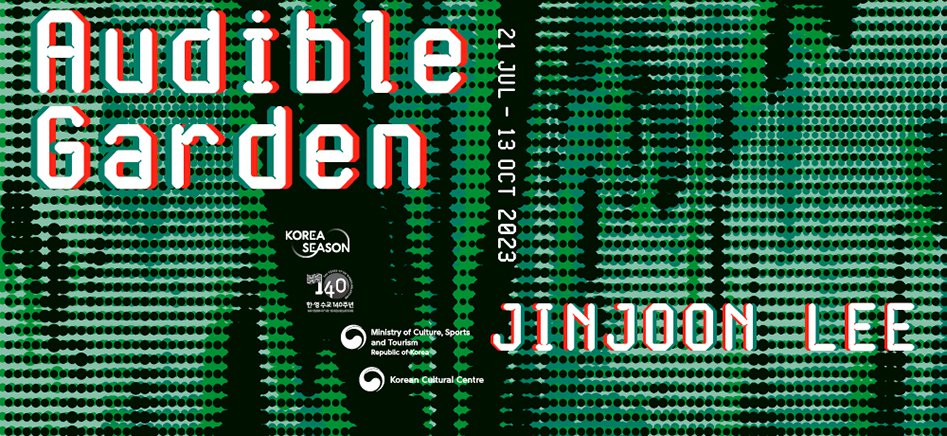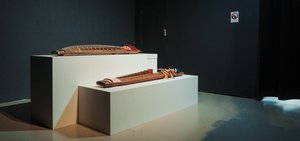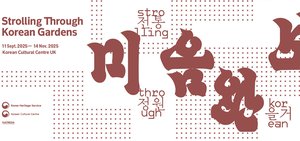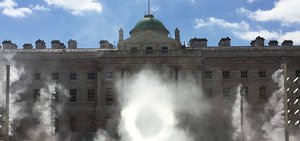AUDIBLE GARDEN

This summer, the Korean Foundation for International Cultural Exchange (KOFICE) and the Korean Cultural Centre UK (KCCUK) co-present Audible Garden, the solo exhibition of work by new media artist Jinjoon Lee as part of a yearlong celebration of the 140th anniversary of diplomatic relations between the Republic of Korea and the UK. Drawing inspiration from Asian Sansui landscape painting and Korean garden philosophy, Lee has created a multisensory space that constructs a new environment whilst also deciphering the current world we inhabit. Inspirited by Lee’s residency at Hertz lab of the ZKM in Germany, Audible Garden will run from the 21 July - 13 October 2023 at the KCCUK exhibition space.
Lee’s work, deeply influenced by Korean garden philosophy, his childhood memories of Dragon Horse Mountain (Youngma San) in his hometown Masan, and Sansui paintings of East Asia, begins with an exploration of the KCCUK building. This approach resembles the creation of a traditional Korean garden where nature is nurtured according to the spatial conditions. Lee, through his personal experiences and an East Asian perspective of landscape, adopts an auto-ethnographic approach to question how we experience and comprehend discoveries of nature, space, sound, and memory. He specifically probes into how the rampant spread of media and technology has altered our perception of the surrounding landscape.
For this exhibition, Lee envelops his sculptures, drawings, a wall painting, prints, videos, audiovisual installations, a super directional loudspeaker installation and interactive sound art in a green filter that blends the interior and exterior landscapes interposed by the KCCUK’s glass façade. He aims to embody these imprints of his consciousness by challenging the boundaries between inside and outside realms. He creates specially produced plaster LP records, converting his daily life into orchestrated sound using data sonification technology, and transforming the sound into a large-scale landscape painting that freely moves between media. Through these works, he presents the audience with a liminoid experience, delicately balancing between art and nature, sound and silence, and physical and digital realms.
Dr. Jinjoon Lee FRSA, MRSS, born in Masan, Korea, graduated from Seoul National University with a BBA in Business (2001) and a BFA (2005) and MFA (2009) in Sculpture. He later earned an MA degree (2017) in the Moving Image Pathway of Sculpture from the Royal College of Art. Subsequently, he pursued a doctorate in Fine Art from the Ruskin School at the University of Oxford. His doctoral thesis, titled 'Empty Garden: A Liminoid Journey to Nowhere in Somewhere'(2020), manifested as a 10-meter-long scroll, intermixing East Asian Garden aesthetics with existentialism, poetry, and autoethnographic research, offering a new theoretical perspective on liminal spaces. Lee has served as a guest artist at the ZKM Center for Art and Media and is currently a professor at KAIST (Korea Advanced Institute of Science and Technology).








